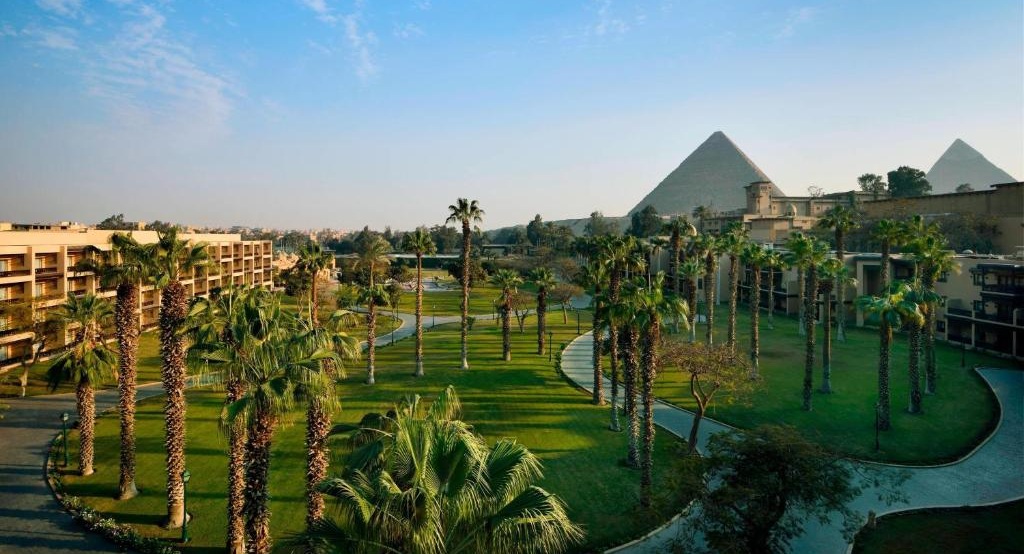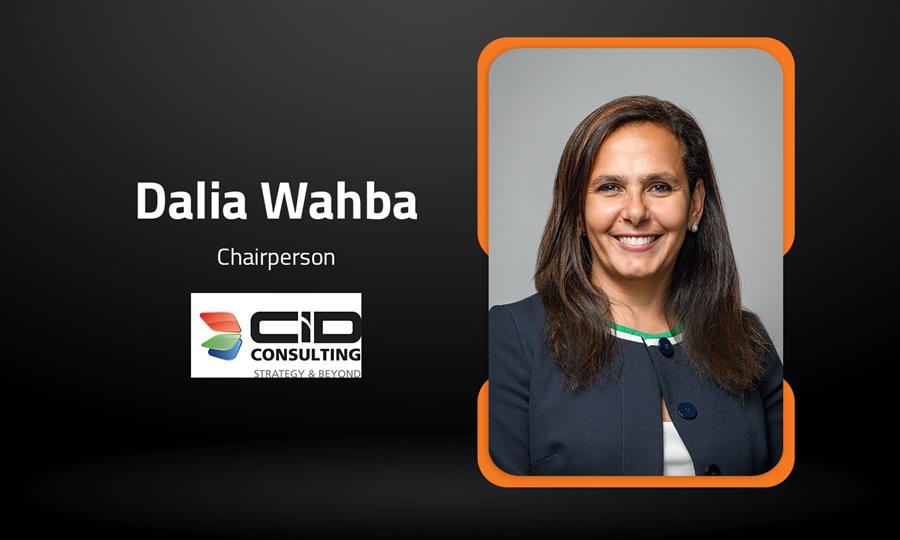Savills Egypt: Elevating Tenant Experience and Maximizing Asset Value
Updated 2/11/2025 8:00:00 AM
Arab Finance: In this exclusive interview with Arab Finance, Catesby Langer-Paget, Head of Savills Egypt, shares insights into the dynamic Egyptian real estate market.
He discusses Savills Egypt's impressive growth over the past five years, its strategic approach to economic challenges and driving clients’ success, key investment opportunities, and the market’s evolving demands.
1-As Savills Egypt offers a broad range of services, which service lines have seen the most growth in the Egyptian market over the past five years, and why?
Over the past five years, Savills Egypt has seen remarkable growth in property and facility management, strategic consultancy, design and project management, and transactional services.
As Egypt's real estate landscape becomes more sophisticated, developers and investors seek global expert guidance to navigate market shifts, optimize operations, and maximize returns.
Our property and facility management consultancy was introduced to support large-scale developments across the country, helping clients enhance operational efficiency, control costs, and integrate sustainability practices.
The demand for strategic advisory services has also surged, as developers look for expert insights into highest and best-use strategies, mixed-use developments, including commercial, hospitality and education, and phased development.
We have recently played a significant role in shaping large-scale urban development in Egypt under a World Bank-led initiative. This was in cooperation with Administrative Capital for Urban Development (ACUD) as part of a consortium led by Dar and with the Sheikh Zayed City Council.
Additionally, servicing our global corporate occupier clients, such as Bupa and Huawei, has become a cornerstone of our business. We assist them with anything from disposals, acquisitions and relocations to office design and fit-out.
The growing appeal of Egypt’s real estate sector has led to record-breaking transactions, including EGP 17 billion in sales for Qatari Diar Real Estate Investment Company in 2024 through Savills sales team. This trajectory reflects Savills’ ability to blend global expertise with local market intelligence, ensuring that every project is positioned for long-term success.
2-What differentiates Savills Egypt from other real estate consultancies operating in the country? What is your unique selling proposition (USP)?
Savills Egypt stands out in the market by offering a comprehensive, data-driven, and results-oriented approach. This approach combines global expertise with a deep understanding of local dynamics, thanks to our unparalleled roster of 160 on-ground real estate advisors and experts.
Unlike many consultancies that specialize in isolated service lines, Savills provides a fully integrated real estate offering. These cover market research, strategic advisory, property and facility management, marketing, leasing, and design and project management.
Our ability to transform underperforming assets into high-value investments is a key differentiator. A prime example is our work on Majarrah, a mixed-use development in Sheikh Zayed that was operating below its impressive potential in a very competitive market.
By implementing a strategic repositioning plan in 2024, we elevated its occupancy from 54% to 92% and increased annual footfall by 35%. This plan also enabled tenants to achieve sales growth of up to 100%.
Additionally, our regional and global network gives us access to best-in-class real estate practices. It allows us to introduce advanced property management solutions and digital innovations to the Egyptian market.
This includes implementing sophisticated financial tools like Yardi for transparency and introducing digital wayfinding technology to enhance tenant and visitor experiences.
3-Savills manages close to 10 properties in Cairo. Can you share some insights into the types of properties you manage and the specific challenges of property management in the Egyptian market?
Savills Egypt manages a diverse portfolio of commercial, retail, and mixed-use properties, ensuring each asset achieves optimal occupancy rates, footfall, and financial performance.
Our expertise spans prominent retail destinations like Arkan Plaza in Sheikh Zayed, where we have secured an occupancy rate of 98.4% and an average daily footfall of over 48,000 visitors, making it one of the most successful commercial projects in West Cairo.
In the office sector, we have played a key role in delivering high-quality corporate spaces for multinational companies such as Bayer, Chevron, Informa, and Organon, ensuring their workplaces are designed for efficiency and long-term sustainability.
The Egyptian property management landscape offers distinct opportunities, characterized by economic variability, changing tenant expectations, and dynamic regulatory environments.
Navigating economic trends and currency fluctuations requires strategic cost management, while the rising demand for enhanced tenant experiences means that property managers can leverage smart technologies, digital solutions, and sustainable practices in their operations
Savills Egypt addresses these challenges through strategic planning and a hands-on approach to asset optimization, ensuring that every property we manage remains competitive in an evolving market.
4-Celebrating its 5th anniversary, what are some of Savills Egypt's most significant achievements to date?
Since its launch in 2019, Savills Egypt has grown into one of the country’s most influential real estate consultancies. It has achieved significant milestones in market expansion, asset transformation, and large-scale advisory projects.
In 2024, we recorded a 96% increase in revenue and a 95% rise in profit year-on-year, underscoring the strength of our operations and strategic direction.
Our team has also grown substantially, expanding from 140 employees at the start of 2024 to 160 by year-end.
In just under five years, we have advised on over 5.5 million square meters of built-up area across the MENA region and facilitated some of Egypt’s largest transactions, including EGP 30 billion in real estate sales for Qatari Diar.
Our success is also reflected in our ability to transform key assets. For example, Savills transformed Mazar Mall into a thriving commercial hub, boosting its occupancy rate from 45% to a record-high 98%, while increasing footfall from 1,000 to 15,000 per day. This, in turn, elevated the property’s value from EGP 300 million to EGP 1 billion.
5-Which segments of the Egyptian real estate market offer the most promising investment opportunities in the current climate?
Despite economic headwinds, several segments of Egypt’s real estate market present strong investment opportunities. The hospitality and tourism sector is experiencing a surge in demand, particularly in the North Coast, where projects like Ras El Hekma have drawn significant investor interest.
The rise of branded residences and luxury hospitality developments reflects a shift toward experiential real estate, offering strong returns for those who cater to high-end local and regional buyers.
As Egypt continues to expand its urban and commercial footprint, developers and investors are increasingly focusing on income-generating asset classes that support long-term economic growth.
With retail spaces evolving to prioritize experiential and lifestyle-driven elements, need for high-functioning commercial and mixed-use developments that cater to shifting market dynamics grows.
Developers are increasingly prioritizing mixed-use retail concepts to create immersive destinations that drive footfall and engagement.
Finally, the office market continues to evolve, with a clear demand for well-managed, flexible Grade A office spaces that serve multinational firms and expanding businesses.
Egypt’s strategic location, coupled with ongoing national development projects, presents opportunities for investors looking to engage in large-scale ventures that contribute to the country’s economic potential.
Savills Egypt remains committed to guiding investors through these evolving trends, ensuring that assets are positioned to align with both current market demands and future growth trajectories.
We are actively advising clients on how to navigate these emerging trends and identify high-yield investment opportunities that align with market demand.
6-How has the Egyptian real estate market performed over the past five years since Savills established its presence, and what factors have contributed to its performance?
Since it entered the market, Savills Egypt witnessed significant shifts in the real estate sector. These changes have been shaped by economic cycles, evolving consumer preferences, and large-scale government initiatives.
Over the past five years, Egypt has seen sustained demand for residential developments, particularly in new urban communities in Greater Cairo, and the North Coast.
Government-backed infrastructure projects and incentives for foreign investment have also played a key role in driving market growth.
Investor sentiment has also evolved, with a growing preference for income-generating assets, particularly in the commercial and retail sectors.
However, economic challenges such as inflation, currency fluctuations, and shifts in financing costs have posed obstacles, prompting developers to adopt more strategic, phased approaches to project execution.
Savills has been at the forefront of helping clients navigate these complexities, offering expert guidance on market positioning, financial structuring, and long-term value creation.
Our ability to blend global insights with local expertise has enabled us to provide tailored solutions that address both immediate challenges and future opportunities.
The past five years have been a period of transformation for the market. Despite macroeconomic pressures, Egypt’s real estate sector has been resilient, with continued demand for well-planned, high-quality developments.
7-What is your perspective on the impact of current economic conditions (e.g., inflation, currency fluctuations) on the Egyptian real estate market and investor sentiment?
The Egyptian real estate market is currently navigating a complex economic environment characterized by inflation, currency fluctuations and market uncertainty.
While these factors have undoubtedly introduced challenges, they have also encouraged developers to adopt more strategic and innovative approaches to project development and asset management.
On the other hand, investor sentiment remains positive as real estate continues to be the preferred investment among Egyptians.
Inflation has driven up construction costs, prompting many developers to explore cost optimization strategies, such as phased development plans and value engineering.
Currency devaluation has had a dual impact - on one hand, it has increased costs for developers reliant on imported materials, and on the other it has reduced the purchasing power of households.
Another consequence is that many developers are reducing unit sizes to meet investors’ price points, often neglecting the needs of the end-users and the practicalities of operating such compact spaces.
Savills Egypt has been working closely with our clients to navigate these shifts by advising on financial resilience strategies, diversifying revenue streams, and leveraging data-driven insights to make informed investment decisions.
While economic conditions remain fluid, Egypt’s strong demand, its youth and growing population, and continued urban expansion underpin the real estate market’s overall stability and growth potential.
8-Looking ahead, what are the biggest opportunities and challenges you foresee for the Egyptian real estate market, and how is Savills Egypt positioning itself to address them?
Egypt's real estate market in 2025 presents both opportunities and challenges as developers and investors adjust to evolving economic conditions, technological advancements, and changing consumer preferences.
A significant opportunity lies in the transformation of the North Coast into a world-class summer destination, spearheaded by large-scale projects like Ras El Hekma.
The increasing demand for professional property management is also crucial, especially with the influx of new commercial spaces.
Strong property and facility management strategies are vital for maximizing asset value, ensuring efficient operations, and delivering high-quality experiences.
The anticipated listing of real estate investment companies and funds on the Egyptian stock market offers investors increased liquidity and access to professionally managed assets.
Additionally, logistics real estate is emerging as an attractive investment segment, driven by Egypt’s strategic location as a regional trade hub.
Related News










